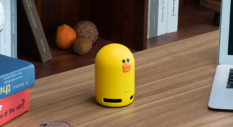As if something right out a dystopian movie, users hit Naver for allegedly eavesdropping on its loyal customers. The act was said to have been done through Naver’s popular Clova AI assistant device.
Naver, however, denies that there was any malicious intent behind the eavesdropping; instead, it was done to improve the quality of the device’s service further. Representatives from Naver continued by saying that the company had done the recording legally and that no user privacy was violated during the device’s two years existence.
“As we notified customers in the terms and conditions of Clova, we store data to verify and improve service quality and then destroy it,” said a statement released by Naver.
Demand for voice assistant devices, like Amazon’s Alexa and Apple’s Siri, has grown significantly in the past years. The Clova AI Assistant went along this popularity when Naver launched it in 2017.
The complaints about the device revolved around Naver letting third party contractors listen to and transcribe recordings from their users. The test is then reviewed by Naver’s AI assistant to improve its features. Naver added that listening and transcribing voice recordings is an industry-standard. According to the company, it is also done by other companies like Google and Amazon to improve their assistant platforms.
In fact, Apple and Amazon were recently accused of recording sounds from their users even when users are not using the platform. Naver, however, only starts recording when users summon the device.
“Naver didn’t collect any kind of conversations when users didn’t summon the Clova voice assistant,” Naver said.
After facing the same issue, Google and Apple deactivated unauthorized recording from heir devices. Alexa also added a feature that asks users if they are willing to be listened on.
Anh Hye-yeon, president of the Center for Women in Science, Engineering, and Technology (WISET) and a professor of cybersecurity at Ewha Woman’s University, said Naver’s actions wouldn’t have been an issue had they notified users of their recording practices. They should have likewise told their users that the recordings will not be used outside quality assurance activities.
“The majority of companies offering AI voice assistant services have been employing such practices to improve the service quality,” Ahn said.







